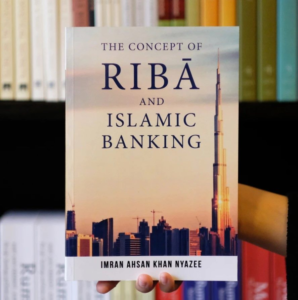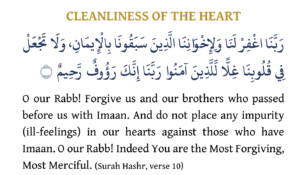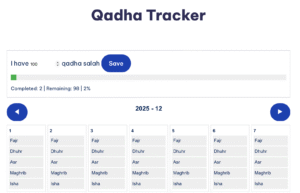What is Riba and the two types of Riba?
Ramadan Offer
The word “Riba” means excess, increase or addition. According to Shariah terminology, it implies any excess compensation without due consideration
RIBA IN THE QURAN
- First Revelation (Surah al-Rum, verse 39)
“That which you give as interest to increase the peoples’ wealth increases not with God; but that which you give in charity, seeking the goodwill of God, multiplies manifold.” (30: 39) - Second Revelation (Surah al-Nisa’, verse 161)
“And for their taking interest even though it was forbidden for them, and their wrongful appropriation of other peoples’ property. We have prepared for those among them who reject faith a grievous punishment (4: 161)” - Third Revelation (Surah Al ‘Imran, verses 130-2)
“O believers, take not doubled and redoubled interest, and fear God so that you may prosper. Fear the fire which has been prepared for those who reject faith, and obey God and the Prophet so that you may receive mercy.” - Fourth Revelation (Surah al-Baqarah, verses 275-81)
- Those who consume interest will stand ˹on Judgment Day˺ like those driven to madness by Satan’s touch. That is because they say, “Trade is no different than interest.” But Allah has permitted trading and forbidden interest. Whoever refrains—after having received warning from their Lord—may keep their previous gains, and their case is left to Allah. As for those who persist, it is they who will be the residents of the Fire. They will be there forever.(275)
- Allah has made interest fruitless and charity fruitful. And Allah does not like any ungrateful evildoer.(276)
- Indeed, those who believe, do good, establish prayer, and pay alms-tax will receive their reward from their Lord, and there will be no fear for them, nor will they grieve.(277)
- O believers! Fear Allah, and give up outstanding interest if you are ˹true˺ believers.(278)
- If you do not, then beware of a war with Allah and His Messenger! But if you repent, you may retain your principal—neither inflicting nor suffering harm.(279)
- Also read : Books on Islamic banking
RIBA IN HADITH
- From Jabir : The Prophet, , may cursed the receiver and the payer of interest, the one who records it and the two witnesses to the transaction and said: “They are all alike [in guilt].” (Muslim, Kitab al-Musaqat, Bab la’ni akili al-riba wa mu’kilihi; also in Tirmidhi and Musnad Ahmad)
- Jabir ibn ‘Abdallah , giving a report on the Prophet’s Farewell Pilgrimage, said: The Prophet, ,
addressed the people and said “All of the riba of Jahiliyyah is annulled. The first riba that I annul is our riba, that accruing to ‘Abbas ibn ‘Abd al-Muttalib [the Prophet’s uncle]; it is being cancelled completely.” (Muslim, Kitab al-Hajj, Bab Hajjati al-Nabi, ; may also in Musnad Ahmad) - From ‘Abdallah ibn Hanzalah : The Prophet, , said: “A dirham of riba which a man receives
knowingly is worse than committing adultery thirty six times” (Mishkat al-Masabih, Kitab al-Buyu, Bab alriba, on the authority of Ahmad and Daraqutni). Bayhaqi has also reported the above hadith in Shuab al-iman with the addition that “Hell befits him whose flesh has been nourished by the unlawful.” - From Abu Hurayrah : The Prophet, , said: “Riba has seventy segments, the least serious being
equivalent to a man committing adultery with his own mother.” (Ibn Majah) - From Abu Hurayrah : The Prophet, , said: “There will certainly come a time for mankind when everyone will take riba and if he does not do so, its dust will reach him.” (Abu Dawud, Kitab al-Buyu’, Bab fi ijtinabi al-shubuhat; also in Ibn Majah)
- From Abu Hurayrah : The Prophet,said: “God would be justified in not allowing four persons to enter paradise or to taste its blessings: he who drinks habitually, he who takes riba, he who usurps an orphan’s property without right, and he who is undutiful to his parents.” (Mustadrak al-Hakim, Kitab
al-Buyu’)
Types of Riba
- The first and primary type is called Riba An Nasiyah or Riba Al Jahiliya.
- The second type is called Riba Al Fadl, Riba An Naqd or Riba Al Bai.
Since the first type was specified in the Quranic verses before the sayings of the Holy Prophet , this type was termed as Riba al Quran. However the second type was not understood by the Quranic verses alone but also had to be explained by the Holy Prophet , it is also called Riba al Hadees.
Riba An Nasiah
‘Riba An Nasiyah’ is defined as excess, which results from predetermined interest (sood) which a lender receives over and above the principal (Ras ul Maal) in any loan transaction.
This is the real and primary form of Riba. Since the verses of the Holy Quran has directly rendered this type of Riba as haram, it is also called ‘‘Riba Al Quran.’’ Similarly, since only this type was considered as Riba in the dark ages, so it has earned the name of “Riba Al Jahiliyyah” as well.
- Imam Abu Bakr Hassas Razi has outlined a complete and prohibiting legal definition of Riba An Nasiyah in the following words:“That kind of loan where specified repayment period and an amount in excess of capital is predetermined.”
- One of the ahadith quoted by Ali ibn at Talib (RAA) has defined Riba An Nasiyah in similar words. The Holy Prophet said:
“Every loan that draws interest is Riba.” - The famous Sahabi Fazala Bin Obaid has also defined Riba in similar words:
“Every loan that draws profit is one of the forms of Riba” - The famous Arab scholar Abu Ishaq az Zajjaj also defines Riba in the following words:
“Every loan that draws more than its actual amount”
Riba An Nasiyah refers to the additional premium which is paid to the lender in return for his waiting as a condition for the loan and is technically the same as interest. The prohibition of Riba An Nasiyah is one of those issues which have been confirmed in the revealed laws of all Prophets ( ). Some of the old testaments has rendered Riba as haram (See Exodus 22:25, Leviticus 25:35- 36, Deuteronomy 23:20, Psalms 15:5, Proverbs 28:8, Nehemiah 5:7 and Ezakhiel 18:8,13,17 & 22:12).
riba, if you are believers.[278]But if you do not (give it up), then
listen to the declaration of war from Allah and His Messenger.[279]However, if you repent, yours is your principal. Neither wrong,
nor be wronged. [279] If there is one in misery, then (the creditor
should allow) deferment till (his) ease, and that you forgo it as
alms is much better for you, if you really know.[280] Be fearful
of a day when you shall be returned to Allah, then every person
shall be paid, in full, what he has earned, and they shall not be
wronged.” 281
Riba Al Fadhl :
Riba Al Fadl actually means that excess which is taken in exchange of specific homogeneous commodities and encountered in their hand-to-hand purchase & sale.It refers to the buying and selling of similar goods in different amounts (e.g., number, weight, value, etc.) with the same price. For example: Exchanging 2kg of dates for 3 kg of dates on December 1, at the same time. The excess of 1kg dates is riba al Fadl.
This hadith enumerates in the six (06) different commodities
namely:
1) Gold
2) Silver
3) Dates
4) Wheat
5) Salt
6) Barley
These six commodities can only be bought and sold in equal quantities and on spot. An unequal sale or a deferred sale of these commodities with similar commodities will constitute Riba.
These six commodities in fiqh terminology are called “Amwaale-Ribawiyyah”. Does this hadith apply only to the items mentioned in it? Does it concern sales of barley or wheat but not rice? Of dates but not raisins?
A complete legal definition differs in every fiqh wrt Amwaale-Ribawiyyah
Imam Abu Hanifa
Imam Abu Hanifa sees only two common characteristics namely:
1) Weight or Volume
2) Exchange is between similar commodities
Meaning all these six goods are sold by either weight or volume. Therefore, all those commodities, which are measured through either the units of weight or the units of volume and are exchanged against the same commodity, will fall under the rules of Riba Al Fadl.
Imam Shafi
The two characteristics observed by Imam Shafi are:
1) Medium of Exchange
2) Eatable (Edible)
Therefore, this law will apply on everything edible or having the natural ability of becoming a medium of exchange (currency).
Imam Maalik
Imam Maalik identified the following two characteristics:
1) Eatables (Edibles)
2) Preservable
Imam Ahmad Bin Hanbal
Three citations have been related to him:
i) First citation conforms to the opinion of Imam Abu Hanifa
ii) Second citation conforms to the opinion of Imam Shafi
iii) Third citation includes three characteristics at the same time i.e. edible, weight and volume.
However, all schools of thought are unanimous that if one of the two characteristics are found then tafazul i.e. difference in quantity is allowed, but Nasiyah i.e. credit / deferred sale is not allowed.
Simple and Compound Interest
Interest can be classified into two types:
• Simple Interest ( Sood-e-Mufrad)
• Compound Interest (Sood-e-Murakkab)
Definition of Simple Interest
Simple interest is the interest paid on the original principal only. For instance, for a loan of Rs 10,000, interest will only be calculated on Rs 10,000. If Interest rate is 10% per annum then at the end of the year, interest will be Rs 1,000 and in the next year, interest will be calculated only on Rs 10,000 which was the initial principal of loan.
Definition of Compound Interest
Compound interest arises when interest is added to the principal, so that, from that moment on, the interest that has been added also earns interest. This addition of interest to the principal is called “compounding.” For instance, for a loan of Rs 10,000, If interest rate is 10% per annum then at the end of the year, the interest will be Rs 1,000 and in the next year, interest will be calculated on Rs 11,000 which is the initial principal of loan plus the interest accrued over the final principal of loan.
During the pre-Islamic era, when a borrower failed to pay back the principal and interest charged on him, then the lender used to extend the loan on the condition that the interest will also become part of the loan (essentially Compound Interest). The following verses of Quran were revealed in order to stop the
people from such practices:
To eradicate this abominable practice of the period of ignorance, this verse was revealed. By mentioning the practice of taking interest in a doubled and multiplied manner, it was condemned and declared unlawful in view of its adverse impact on the community and the selfishness that it bred. It does not mean that if there is interest without it being doubled and multiplied (i.e. if there is simple interest, in today’s jargon), then it is lawful. In Surah Al Baqarah (The Cow) and Surah An Nisa (The Women), the prohibition of interest in its entirety and in absolute terms is clearly mentioned, no matter interest is doubled and multiplied or not.
Ref : Dr. Muhammad Imran Ashraf Usmani in Meezan Bank’s Guide to Islamic Banking
Discover more from Islam Hashtag
Subscribe to get the latest posts sent to your email.










